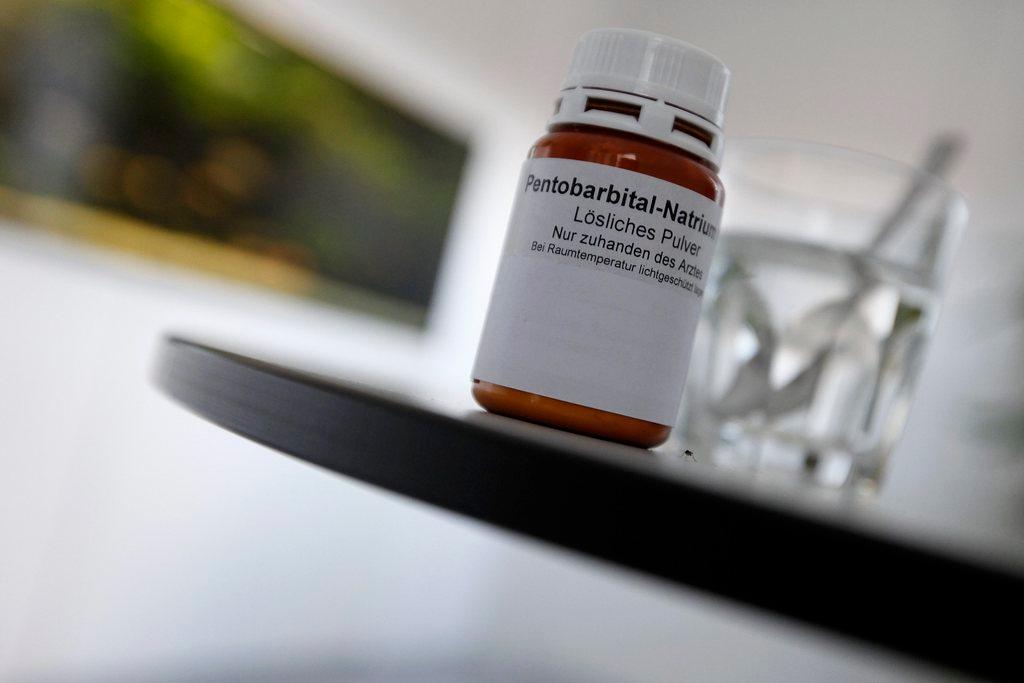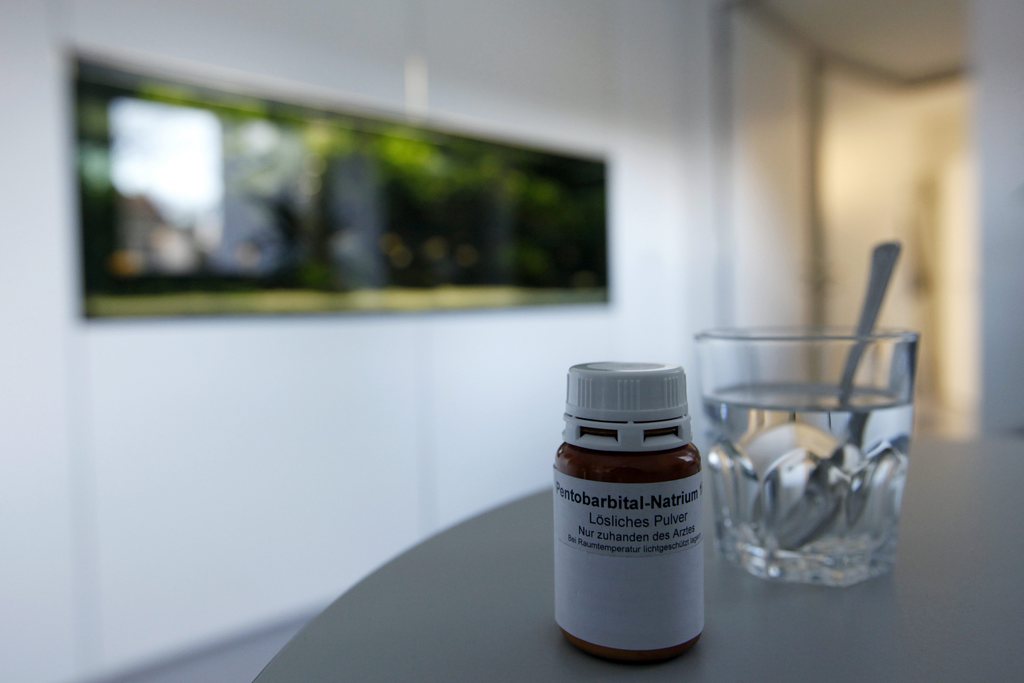Switzerland, leading the way in assisted suicide?

Autonomy. Whether you are talking about the terminally ill or those simply tired of life, this is the most important, and often the final argument, in the assisted suicide debate. Many people want to decide for themselves when to end their lives.

The final act in assisted suicide – which is widely accepted in Switzerland – is the taking of a lethal substance. It needs the patient’s active involvement. Or to put it another way: it’s a suicide for which the patient requires medical help to prepare.
Switzerland is one of the most progressive countries in the world when it comes to assisted suicide. That’s why “suicide tourism” is booming, because the right to suicide in old age is barely regulated. This liberal attitude makes us easily forget though that even in Switzerland dealing with assisted suicide is no easy matter. There is a constant struggle with fundamental principles – political, religious, social and ethical. Can a human life in a time of need be a matter of debate? Discussions about banning suicide tourism come up time and again.

Assisted suicide organisations in Switzerland like Dignitas or Exit consider assisted suicide as the “final human right”. People only demand an accompanied death when they are no longer able to do it themselves.
The patient’s wish is of the highest importance. Every wish to die should be respected, without any moral judgement. Swiss politician This Jenny, for example, opted – as widely reported in the media – for an assisted suicide in hospital in his home canton of Glarus. But much of what is said in the media is oversimplified: that you have to be a tough character to maintain this kind of independence to the very end. Stories about celebrity assisted suicides are often reported like this. This little bit of freedom to kill yourself – with the approval of an outside authority and thus in dignity and not, as previously, under (especially religious) disapproval – is presented as an achievement. And Switzerland is the mecca for this.

More
Why is Switzerland behind in palliative care?
But work in the palliative care sector shows that this does not always happen in real life. Palliative care seeks to give some transparency to the issues of confronting death and the wish to die. It also aims to remove the taboos. There is an alternative. Suicide can be a long-term burden for loved ones and end up being an extremely ambivalent act for the patient. Do I want to go or not?
It is right that the patient’s wish is of the highest importance. But this wish has to be clear and this is not always the case. This is where palliative support comes in. Experience shows that the desire for suicide not only lessens as the illness progresses but also lessens with the right information and support. Patients don’t have to make a decision on their own in a moment of weakness. When people decide to go down the palliative care route, as theologian and pastor Susanna Meyer Kunz has told the Bündner Tagblatt newspaper, they are always astounded by the developments. A lot could still happen, such as enlightenment or reconciliation. Fears can be eliminated.
Assisted suicide: legislators and authorities
Each Swiss canton has different regulations for assisted suicide. Increasing numbers of care homes are permitting suicide, for example. In 2014, 60 of the total 583 assisted suicides carried out by Exit took place in care homes. In Basel, care homes are allowed to decide whether to allow assisted suicide. But the practice is not allowed in care homes in Catholic Valais. Assisted suicide is allowed in some cantonal hospitals like in Lausanne, as well as in nursing homes in Zurich.
There are people who are tired of life – or especially among the older generation, feel contented with their life and are ready to go. But many terminally ill people are hit by the end of life question when they are in their prime. At that moment, the patient’s wishes are affected by many different influences such as other people’s opinions, or by values, beliefs and religion. Fear can also be a factor. Hence it is important to take time to recognise what people want in order to appreciate the full complexity of each individual’s fate.
Palliative care is no panacea but it does allow an enlightened society to have a transparent discussion about death. This discussion is just as important for society as the right to autonomy. Assisted suicide has a positive image in Switzerland. In this moment of total dependence though, there are more humane ways to die than downing a cup of poison and simply fulfilling a desire for autonomy. If the absolute autonomy of our existence comes down to suicide, if the absolute ideal is to kill yourself, then this needs to be called into question, also in Switzerland. Assisted suicide must not simply become a routine affair.
Assisted suicide: what is allowed
Passive euthanasia is the termination of treatment by the doctor to let the patient die.
Indirect euthanasia is when doctors give the patient strong painkilling drugs and nothing to drink which leads to the patient’s death.
Assisted suicide is when a doctor provides a patient with the means to end his own life.
Active euthanasia is when the doctor gives a patient a palliative drug or injection that could lead to death. Only this form of euthanasia is illegal in Switzerland.
What is your opinion? Is assisted suicide a basic human right and ethical or should autonomy be subject to certain limits? Tell us in the comments section below.
Translated from German by Isobel Leybold-Johnson

In compliance with the JTI standards
More: SWI swissinfo.ch certified by the Journalism Trust Initiative





You can find an overview of ongoing debates with our journalists here . Please join us!
If you want to start a conversation about a topic raised in this article or want to report factual errors, email us at english@swissinfo.ch.